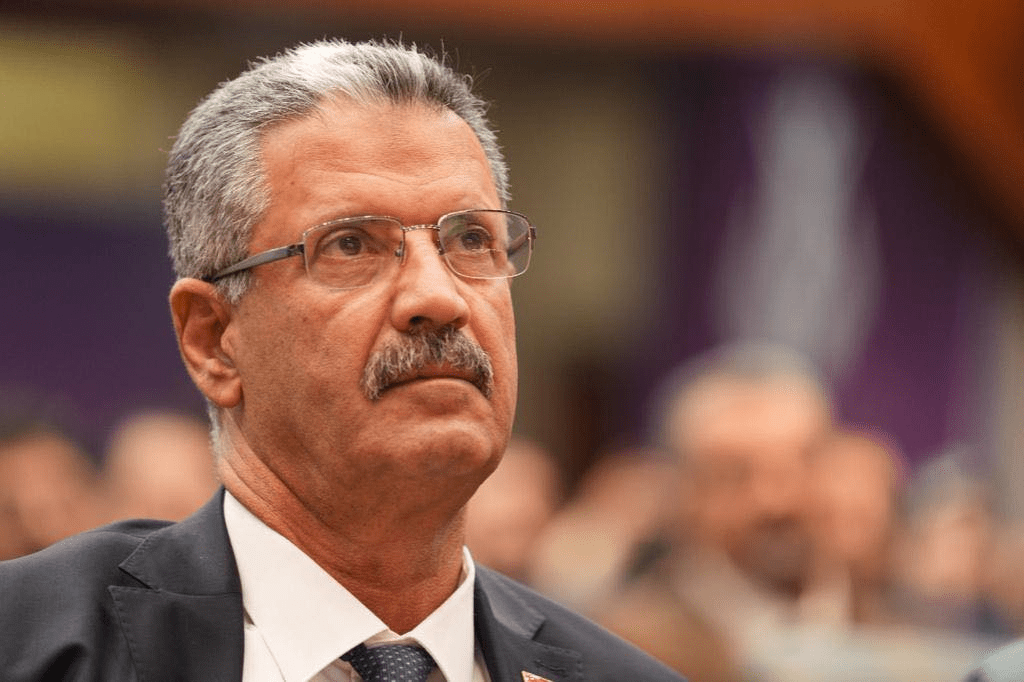Iraqi Oil Minister Hayan Abdul-Ghani said that the entry of new countries into the Organization of Petroleum Exporting Countries (OPEC) aims to strengthen efforts to maintain the stability of the global market, and contributes to the generalization of benefits to all OPEC countries and investors.
This came during an interview conducted by the Emirates News Agency (WAM) with the Iraqi minister on the sidelines of the activities of the Eighth International OPEC Conference in Vienna, in response to a question about the announcement by OPEC Secretary General Haitham Al-Ghais that there are consultations to include new countries in the organization.
Hayan Abdul-Ghani added that OPEC and the OPEC + alliance have approved a set of crucial decisions that not only target oil prices, but also maintain the stability of the global oil market, in a way that guarantees the interest of the producer and consumer in addition to the interests of investors.
He pointed out that the voluntary reduction in production will contribute to strengthening the stability of the global energy market, according to his statements, which were reviewed by the specialized energy platform.
exploration licenses
Minister Hayan Abdul-Ghani said that his country has offered two rounds for licensing to explore oil and gas fields, the fifth complementary round, which included more than 10 oil and gas fields in western Iraq, and the sixth, which includes 13 fields and exploratory sites, located on the western borders of Iraq.
He explained that these fields enable his country to produce more than 1,500 million cubic feet of gas, with the aim of achieving self-sufficiency over the next five years.
And the Iraqi Oil Minister expected that his country would reach self-sufficiency in gas within 5 years, according to the dialogue that was reviewed by the specialized energy platform.
Iraq reserves
Hayan Abdul Ghani said – during the dialogue – that Iraq possesses large oil reserves amounting to 144.5 billion cubic meters of oil, and more than 133 trillion standard cubic feet of gas.
The Iraqi oil minister said that his country has many fields that produce large quantities of oil and gas through cooperation with many international companies.
He referred to a contract with BP to develop the Rumaila field, which is one of the large fields in Iraq, and currently produces 1.380 thousand barrels of oil per day, in addition to the accompanying gas in large quantities.
Minister Hayan Abdul-Ghani added that most of the gas produced in Iraq is associated with oil production, and is not free, according to the dialogue seen by the specialized energy platform.
He said, “We have contracts with Eni to develop the Zuhair oil field, which currently produces 450,000 barrels of oil per day, as well as contracts in West Qurna 1 with Exxon Mobil to produce 380,000 barrels of oil per day, and contracts with Lukoil in the western region.” Qurna 2 “to develop a field with a production of up to 410 thousand barrels per day, in addition to other contracts in different regions.”
Iraq’s oil production capacity
The Iraqi Oil Minister explained that the country’s oil production capacity currently amounts to 5.400 million barrels per day, while the current total production under OPEC’s quota is 4.430 million barrels per day.
He added that Iraq is looking forward, within promising plans, to raise production capacity to 6 million barrels per day, through licensing contracts concluded with companies during the next stage.
Regarding the contribution of oil and gas to the GDP of the State of Iraq, he said that the contribution of oil constitutes the largest part of the gross domestic product of his country, as 90% of the state’s imports depend on oil wealth.
He pointed to the keenness to provide these resources to the Iraqi state in light of the existence of many strategic projects in the fields of industry, agriculture and other sectors to enhance Iraq’s resources.
Iraq’s efforts to reduce emissions
The Iraqi Minister of Oil talked about his country’s efforts to reduce carbon emissions, explaining that Iraq has taken great steps in investing in natural gas, while investment is concentrated in southern Iraq, through the Basra Gas Company, a joint venture between the South Gas Company, Shell and Mitsubishi.

Hayan Abdul Ghani added that the Basra Company has been able, since its inception, to implement promising projects, on top of which is the Basra “NGL” project, which includes an investment of 400 million cubic feet of gas.
He said, “The first phase of the project opened last May, with a capacity of 200 million cubic feet of gas, while the second phase of the project is expected to be completed by the end of the current year 2023, which will contribute to reaching 400 million cubic feet of natural gas.” “.
He pointed out that Iraq launched another project, which is the integrated southern Iraq project, which includes investment in oil in a limited manner, with no more than 250 thousand barrels per day.
There are also – according to the minister – investments in 5 oil fields: Majnoon, West Qurna 2, Luhais, Al-Toba, and Al-Sabbah, which will provide 600 million cubic feet of gas, “which will enhance the contribution to meeting the needs of electric energy.”

Leave a Reply